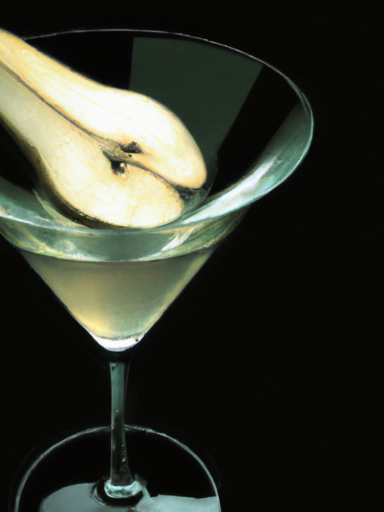Title: Vodka Nutrition Facts: What You Need to Know
Introduction:
Hey there, martini lovers! Today, we’re going to dive into the world of vodka nutrition facts. Many of us enjoy a delicious cocktail from time to time, and it’s essential to be mindful of the nutritional content of the spirits we consume. Vodka, in particular, is a popular choice for many classic and modern martinis. So, let’s explore the facts about vodka nutrition and understand what it means for our overall health and well-being.
1. What is Vodka:
Vodka is a clear and colorless distilled spirit that is typically made from fermented grains or potatoes. The production process involves distillation to remove impurities and create a clean-tasting spirit. It is one of the most versatile spirits, perfect for creating a wide range of cocktails. With a neutral flavor profile, vodka allows the other ingredients in a drink to shine.
2. Calorie Content:
When it comes to vodka’s calorie content, knowledge is power. While it is true that vodka is a low-calorie option compared to many other spirits and liqueurs, it is essential to be aware of its potential impact on your overall caloric intake. On average, vodka contains about 64 calories per ounce, but this can vary based on brands and flavored options. So, if you’re watching your calorie intake, it’s good to keep an eye on your vodka consumption.
3. Carbohydrate Content:
Carbohydrates are another important aspect of vodka nutrition. The good news is that vodka is typically low in carbohydrates, containing little to no carbs. However, it’s essential to distinguish between regular vodka and flavored vodka. Flavored vodka may contain some carbohydrates, as these flavors are often added using sugars or artificial sweeteners. So, if you’re looking to minimize your carbohydrate intake, opt for regular vodka or check the nutrition labels of flavored options.
4. Sugar Content:
While vodka itself does not contain any sugar, flavored vodka can sometimes have added sugars. These sugars can increase the overall sugar content of your drink, affecting your sugar intake. So, if you’re keeping an eye on your sugar consumption, it’s wise to choose flavored vodkas wisely or opt for regular vodka and add natural flavors using fresh fruits or herbs.
5. Gluten-Free Nature:
One of the fantastic qualities of vodka is its gluten-free nature. It is generally considered safe for individuals with gluten intolerance or sensitivity. However, it’s important to note that some vodkas may still contain traces of gluten due to the manufacturing process or added flavorings. If you have celiac disease or gluten allergies, it’s crucial to check the labels for specific gluten-free certifications or opt for vodkas made from gluten-free ingredients like corn or potatoes.
6. Alcohol by Volume (ABV):
Now, let’s talk about the alcohol by volume (ABV) of vodka. ABV is a standard measure of how much pure alcohol is present in a given volume of drink. In the case of vodka, it typically ranges from 35% to 50% ABV, depending on the brand and country of origin. It’s important to know the ABV of your vodka, as it affects the strength of your cocktail. Always enjoy your drinks responsibly and be aware of the alcohol content.
7. Health Implications:
While consuming vodka in moderation has its potential health benefits, it’s essential to understand the concept of moderation. Moderate alcohol consumption may have positive effects on heart health, antioxidant properties, and social bonding. However, excessive or frequent drinking can have detrimental effects on your physical and mental well-being. Remember, moderation is key to enjoying your cocktails while maintaining a balanced lifestyle.
Conclusion:
Martini lovers, we’ve made it to the end of our exploration into vodka nutrition facts. Understanding the calorie, carbohydrate, and sugar content of vodka can help you make informed choices while enjoying your favorite cocktails. Whether you’re a fan of classic martinis or adventurous mixologist, being aware of the nutritional aspects of vodka is an important part of elevating everyday moments. So, grab your shaker, experiment with flavors, and enjoy vodka responsibly and in moderation. Cheers to a well-informed martini experience!




